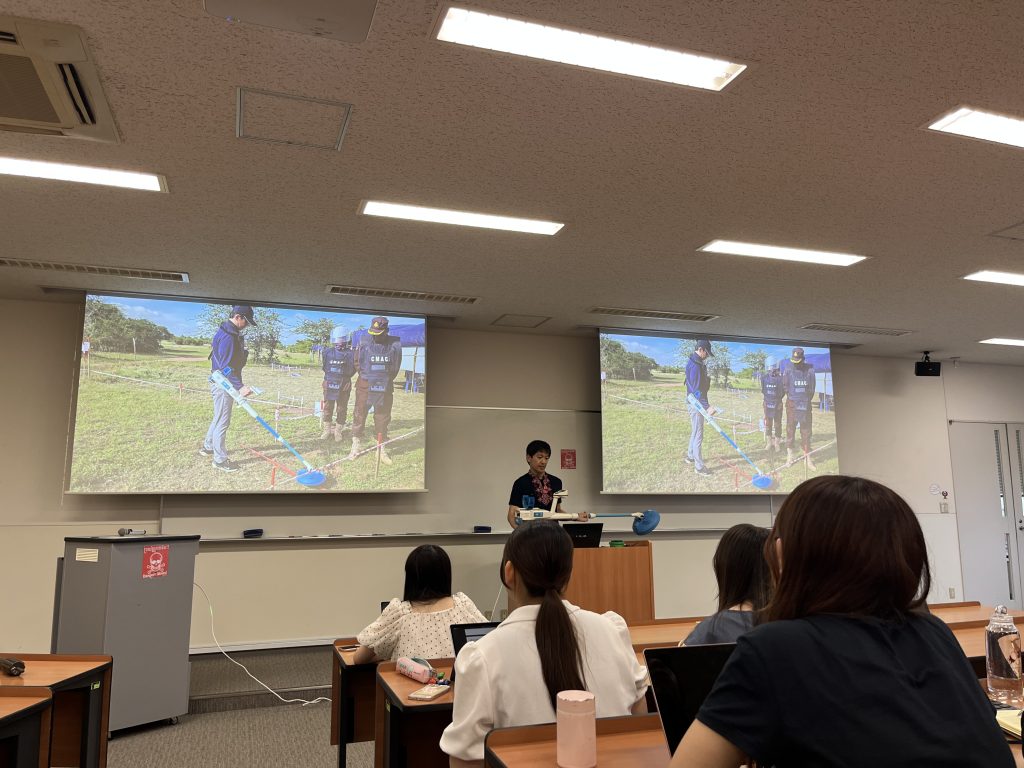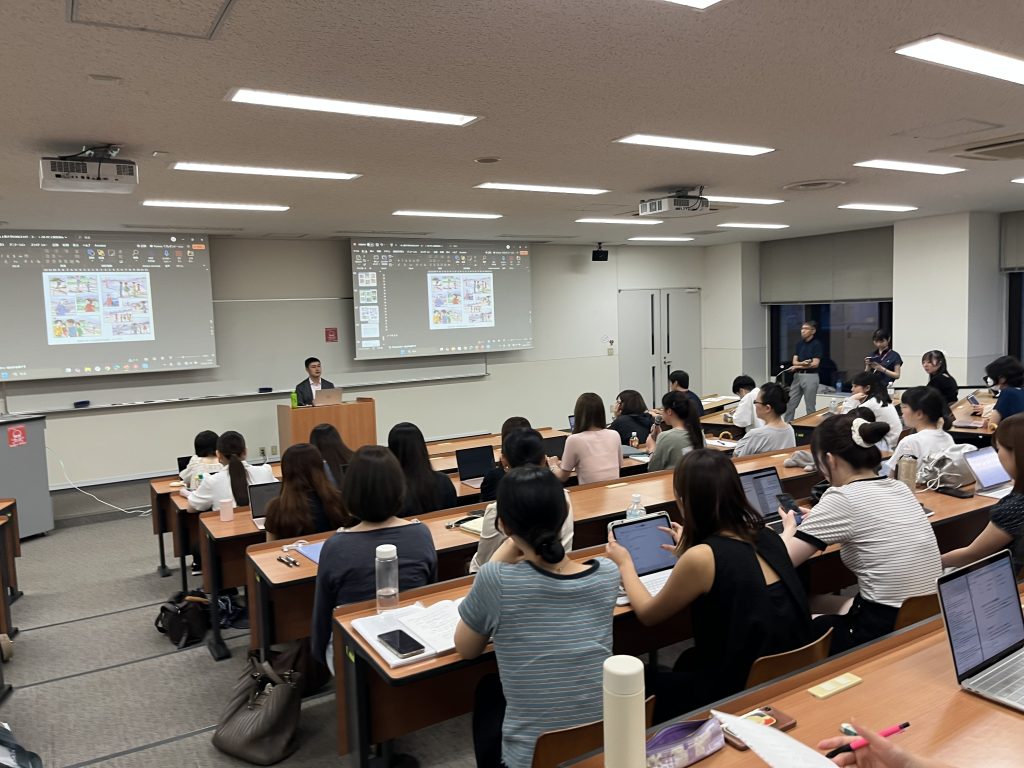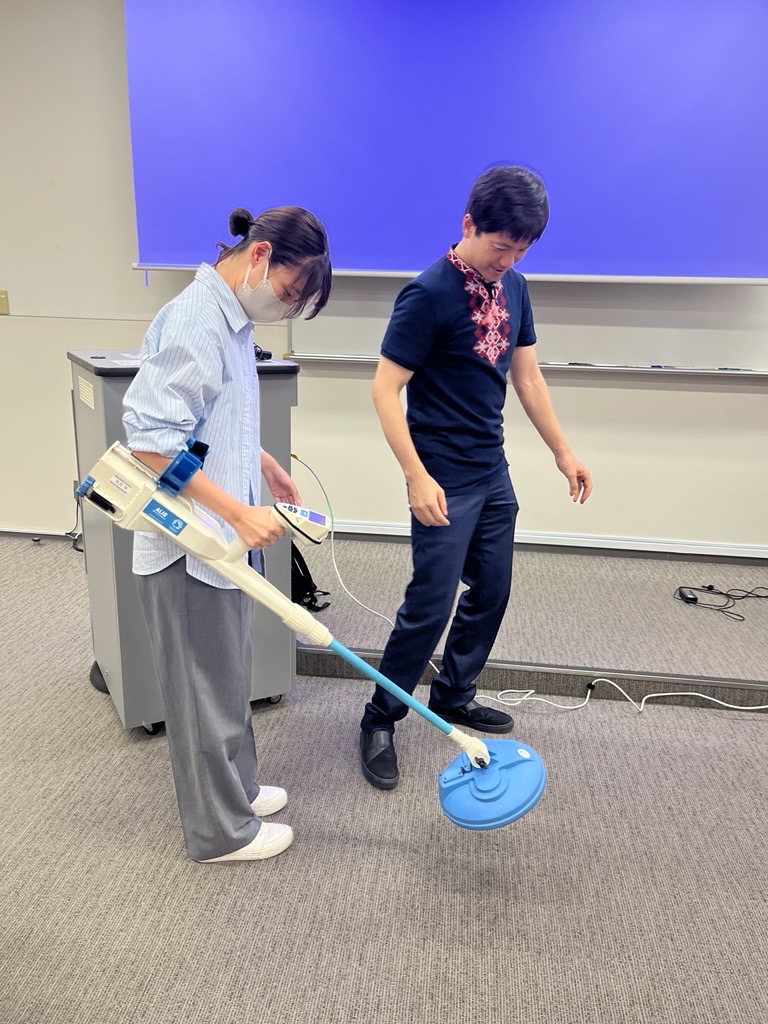On July 4, Sophia University hosted a seminar titled “Human Security and International Cooperation: Landmine Clearance and Risk Education,” which drew approximately 100 participants, primarily students. The year 2025 marks a significant moment for Japan’s leadership in global mine action, as it plays key roles in hosting the TICAD9 summit for African development, the Ukraine Mine Action Conference (UMAC) in Tokyo, and serving as chair of the Meeting of States Parties to the Ottawa Treaty banning anti-personnel landmines.
The event opened with remarks from Professor Naoki Umemiya, Deputy Director of Sophia University’s Human Resources Center for International Cooperation, who highlighted the critical challenges of human security and Japan’s responsibilities in the international community. The seminar was moderated by Professor Taro Komatsu of the Department of Education, Faculty of Human Sciences.
In the first session, Mr. Kenji Tajima—Deputy Chief Advisor of the JICA Project for Humanitarian Mine Action in Ukraine and Senior Consultant at Koei Research & Consulting Inc.—shared insights from his field experience in Ukraine, where Japan is providing technical training and support for mine clearance. His lecture emphasized that nearly 80% of landmine victims are civilians, that removal costs far exceed production costs, and that demining efforts are essential for restoring livelihoods and rebuilding society. He also offered a detailed explanation of the procedures and equipment involved in landmine detection and clearance.

The second session featured Mr. Fukuo Kakizawa from AAR Japan (Association for Aid and Relief, Japan), who presented on Explosive Ordnance Risk Education (EORE) activities in countries such as Cambodia, Afghanistan, and South Sudan. He introduced a wide range of life-saving practices, including the development of educational materials and teacher training in collaboration with national governments, as well as school-based and awareness-raising activities using radio programs, illustrated storyboards (kamishibai), posters, activity cards, picture books, and comics.

Following the presentations, participants engaged in a lively Q&A session, raising questions about the role of women in demining, how to adapt educational initiatives to local contexts, and what motivated the speakers to pursue careers in humanitarian assistance. The venue also featured displays of actual landmine detectors, deactivated landmine models, and EORE teaching materials. Many attendees stayed after the event to view the exhibits and speak with the presenters.
By bringing real-world perspectives, this seminar offered students and participants a valuable opportunity to deepen their understanding of human security and Japan’s role in international cooperation.
